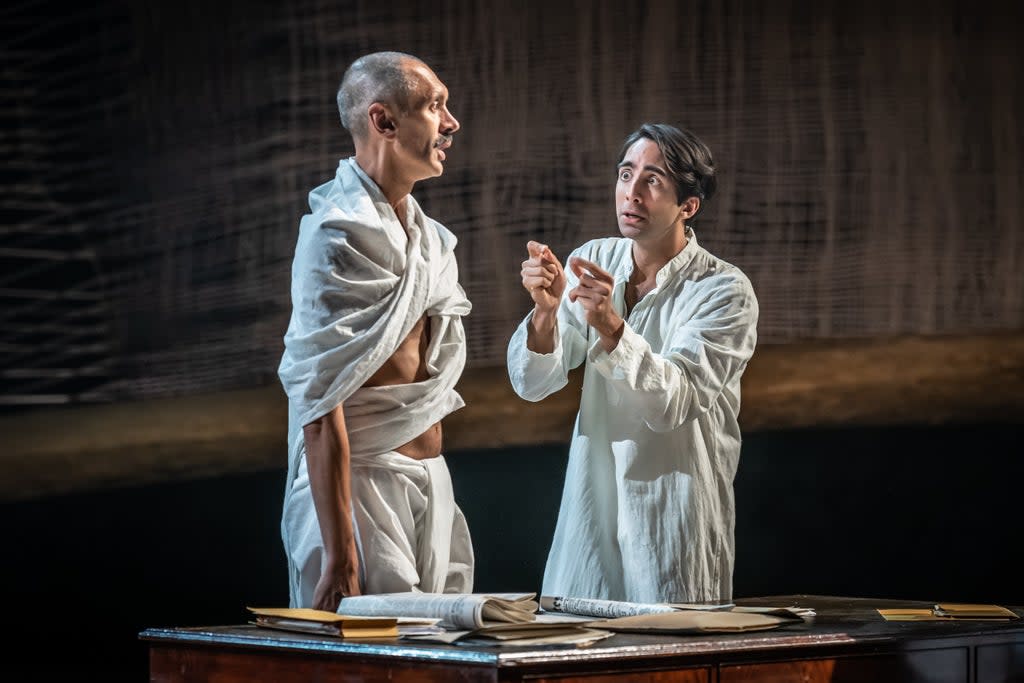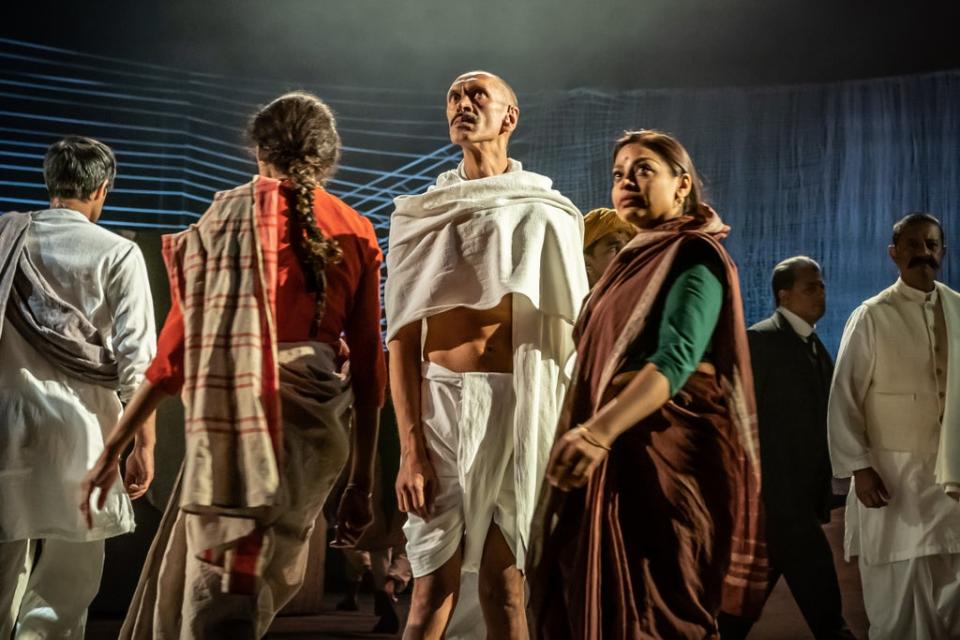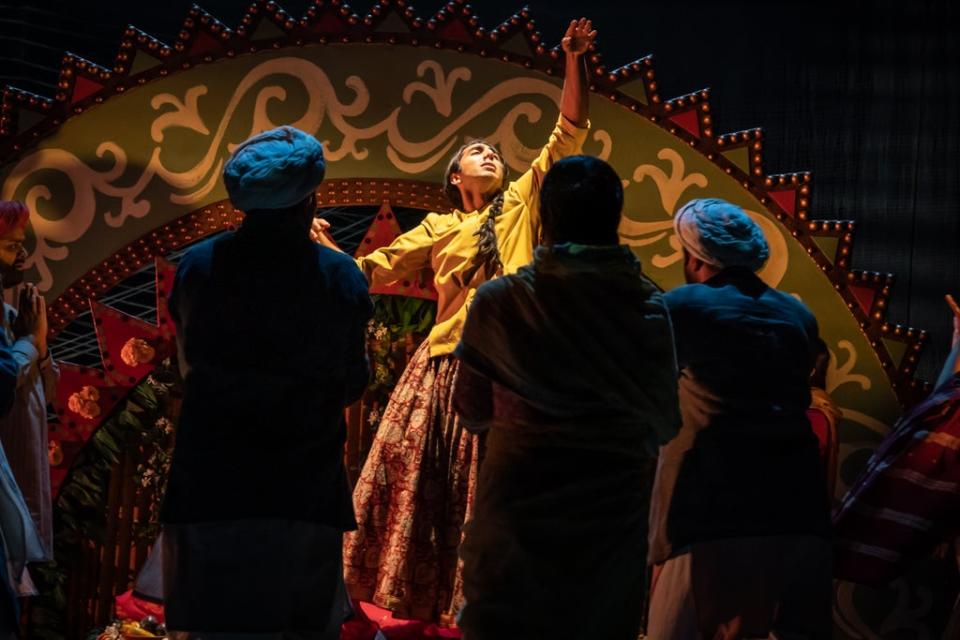The Father and the Assassin, National Theatre review: Gandhi tale is heavy on exposition but short on drama

Should the National Theatre be staging a play about Indian independence, Britain’s brutal role in partition in 1947, and the murder of Gandhi? Of course it bloody should. As the country’s conversation pit, the NT absolutely has a duty to reflect all of our own and the world’s stories, not just the bits of British culture that send white theatregoers home smug, untroubled or - God help us - “proud”.
As it happens, author Anupama Chandrasekhar suggests that 20th century Indian politics and the savage moral turpitude of the British Empire echo broader global issues. Her play is charmingly and conspiratorially narrated by Shubham Saraf as Gandhi’s assassin Nathuram Godse, whose sketchy background she reimagines to explore how fanatics, especially nationalist ones, are born. We, too, could turn into vehement killers, he smilingly tells us, “given the right circumstances”.
The play is heavy on exposition but oddly short on dramatic substance. Massacres and protests are either coolly discussed by politicians or acted out by falling bodies and drifting silks in Indhu Rubasingham’s stark, slick production.

“What are you staring at?” Saraf’s Godse challenges us on his first appearance, covered in the blood of Paul Bazely’s benign but imperfect Gandhi. After this, the narrative flashes back and forth, building a portrait of how Godse cleaved to Hindu-centric fascism and violence in contrast to Gandhi’s pacifist, inclusive secularism.
Sometimes the parallels to contemporary issues are nakedly expressed. Lord Mounbatten pursued a “hard Brexit” when severing India and Pakistan from British rule and each other, Godse tells us. He blames later religious conflicts, nuclear anxiety and border tensions on Gandhi. He can switch the narrative of this very masculine play on and off but can’t stop his childhood friend Vimala (Dinita Gohil) interrupting with a female perspective, or an explanation of Gandhi’s protests against Salt Tax.
For superstitious reasons, Godse was raised as a girl by his parents (previous male children had died) and valued as an oracle of the goddess Durga, leading neighbours to shower the family with tributes and food. Chandrasekhar imagines it was Gandhi who freed him from this pretence, becoming a surrogate father. Godse’s murderous instinct stems from daddy issues, then, and a wish to be important again. Pretty glib.

Saraf wins us over against our better judgment, while Bazely gives a creditable performance in a role that could easily lend itself to caricature. A fine ensemble includes Ayesha Dharker and Tony Jayawardena as Gotse’s parents and a sonorous, sinister turn by Sagar Arya as the Hindu nationalist Savarkar.
Rubasingham choreographs the action smoothly on Rajha Shakiry’s simple set of sunbaked slopes before a fraying fabric backdrop, suggestive of Gandhi’s boycott of British textiles. But at the end, I felt I’d had a lot of history explained to me, rather than being immersed in it.
National Theatre, to Sat June 18, nationaltheatre.org.uk

 Yahoo Movies
Yahoo Movies 
